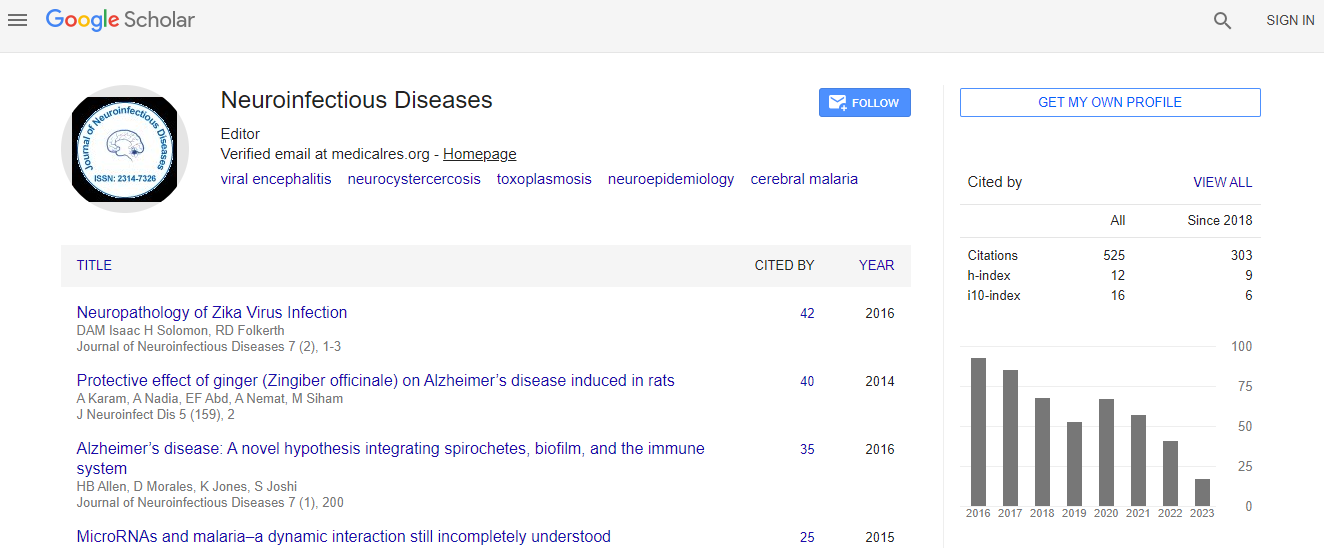Research Article
Impaired Quality of Life One Year After Neuro-Chikungunya: A Brazilian Experience
Hugo André de Lima Martins1*, Camila Cordeiro dos Santos1, Valdenilson Ribeiro Ribas1, Carla Cristiane Pereira de Lima2, Deyse Cristine da Silva Albuquerque2 and Marcelo Moraes Valença1
1Department of Post-Graduation in Neuropsychiatry and Behavioral Sciences, Federal University of Pernambuco, Brazil
- *Corresponding Author:
- Hugo André de Lima Martins
Department of Post-Graduation in Neuropsychiatry and Behavioral Sciences
Federal University of Pernambuco, Rua Josefa Miranda de Farias, 94, Center, Surubim, Brazil
Tel: +558121268000
E-mail: hugomt2001@yahoo.com.br
Received Date: March 22, 2017; Accepted Date: April 11, 2017; Published Date: April 14, 2017
Citation: Martins HAL, dos Santos CC, Ribas VR, de Lima CCP, Albuquerque DCS, et al. (2017) Impaired Quality of Life One Year After Neuro- Chikungunya: A Brazilian Experience. J Neuroinfect Dis 8:243. doi: 10.4172/2314-7326.1000243
Copyright: © 2017 Martins HAL, et al. This is an open-access article distributed under the terms of the creative commons attribution license, which permits unrestricted use, distribution, and reproduction in any medium, provided the original author and source are credited.
Abstract
Chikungunya virus (CHIKV) is a positive-strand RNA arthropod-borne virus that was first described in Africa about 65 years ago, and has now spread worldwide, mostly in underdeveloped countries. This study assessed 42 patients (34 women) with ages ranging from 30 to 78 years 12 months after the acute phase of CHIKV fever. A control group of 40 volunteers (27 women) with similar social and demographic features as the patients was used for comparison. Although the patients presented some neurologic symptoms during the acute phase of CHIKV infection, recovery was considered complete. They were evaluated using the Medical Outcome Study Short-Form 36 Health Survey (SF-36) in respect to their quality of life 12 months after the acute phase of the disease. In the comparison of the scores between groups, all domains were shown to be statistically significant showing a lower quality of life for the patients who had suffered neuro-chikungunya, although no patient had any apparent neurological sequela of CHIKV infection.

 Spanish
Spanish  Chinese
Chinese  Russian
Russian  German
German  French
French  Japanese
Japanese  Portuguese
Portuguese  Hindi
Hindi 
